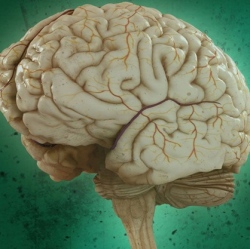
Researchers have identified a drug that could potentially help our brains reverse the damaging impacts of heavy alcohol consumption on brain cells. Their studies in adult mice show that two weeks of daily treatment with the drug tandospirone reversed the effects of 15 weeks of binge-like alcohol consumption on neurogenesis.
This is the first time tandospirone has be shown to reverse the deficit in brain neurogenesis induced by heavy alcohol consumption. Tandospirone acts selectively on a serotonin receptor (5-HT1A). The researchers also showed in mice that the drug was effective in stopping anxiety-like behaviours associated with alcohol withdrawal, and this was accompanied by a significant decrease in binge-like alcohol intake.
“This is a novel discovery that tandospirone can reverse the deficit in neurogenesis caused by alcohol,” said study leader neuroscientist Professor Selena Bartlett from QUT’s Institute of Health and Biomedical Innovation.
“We know that with heavy drinking you are inhibiting your ability to grow new neurons, brain cells. Alcohol is specifically very damaging for neurons.
“Other studies in mice have shown that tandospirone improves brain neurogenesis, but this is the first time it has been shown that it can totally reverse the neurogenic deficits induced by alcohol.
“This opens the way to look at if neurogenesis is associated with other substance-abuse deficits, such as in memory and learning, and whether this compound can reverse these.”
Professor Bartlett, who is based at the Translational Research Institute, said the discovery by study co-authors QUT postdoctoral research fellows Dr Arnauld Belmer and Dr Omkar Patkar came about serendipitously, after research started in a different direction.
